- Learning time
- 20 minutes
- First play time
- 60 minutes
Tiny Epic Galaxies: BLAST OFF!
Designed by: Scott Almes
Taking its cue from Tiny Epic Galaxies, BLAST OFF! does a little rejigging to make a slightly easier-to-learn game. As with its predecessor, your goal is to expand your civilisation and in doing so, score points. How? By chucking custom dice and assigning them either to your home galaxy, or further afield…
Each player starts with their home galaxy mat and some dice in their own colour. Your mat has a marker that tracks how many dice you can roll on your turn, how many rockets you have, and also how much energy you have – spend it to re-roll dice – along with another marker for culture, which can be spent when it’s not your turn to copy another player’s actions.
The actions are what moves the game forward. As well as the home galaxies there are a number of other galaxies (in the form of cards) laid out on the table. At the start of your turn you roll your dice and choose how to assign them: depending on what you roll, you may be able to boost your energy/culture, fly your rockets out to these galaxies, and either visit or take control of them. The rocket symbol allows you to move a rocket, from your home galaxy to any of the cards or from one card to another. You can land on the card to take the action it allows or go into orbit: placing your rocket on its side at the bottom of a track. Every card has such a track for your rockets to work their way up, spending – again – symbols on the dice in order to do so. If you’re first to the top of a track, you claim the card for yourself (along with the available action for a visiting rocket, and the points it scores) and place it by your home galaxy.
You can spend energy to re-roll all your unspent dice, so energy is very helpful. Remember though that other players can spend culture to copy any action you take, which means the competition to claim a particular card can be tense, with several rockets on the same track. As soon as any one player reaches or passes 21 points, the end-game is triggered and the current round is played out before scores are totalled – most points wins!
The guru's verdict
-
Take That!
Take That!
There's no combat, but there are times when your rocket, poised to nab a card, gets left in the dust as someone gets there before you.
-
Fidget Factor!
Fidget Factor!
More or less absent - the 'following' rule means, as long as you have 'culture' to spend, you are active even when it's not your turn.
-
Brain Burn!
Brain Burn!
Low, though not absent. The luck of the dice can be offset by managing an available source of energy, and you can spend energy or culture to place one die in the 'converter' on each turn and flip it to whatever side you like.
-
Again Again!
Again Again!
Once you've played BLAST OFF a few times the sense of exploration falls away a little. But there are always random elements: what cards become available to players, and of course the fall of the dice.

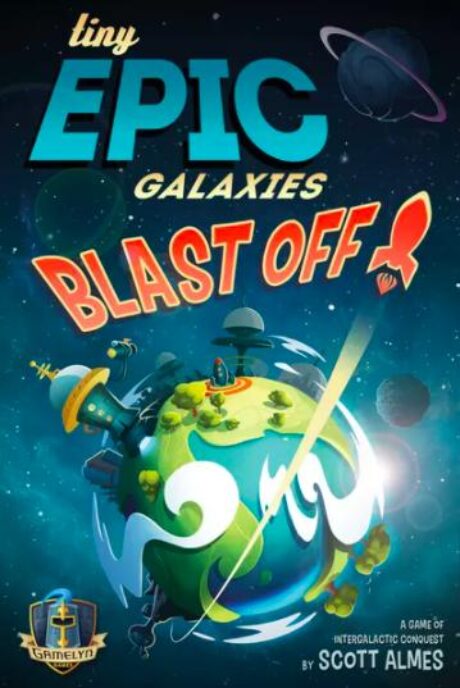
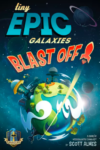
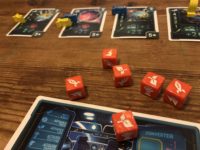
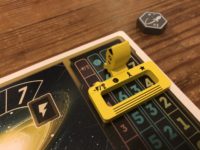
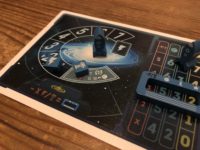
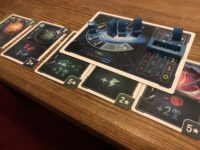
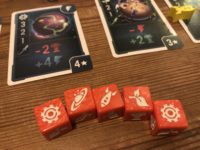


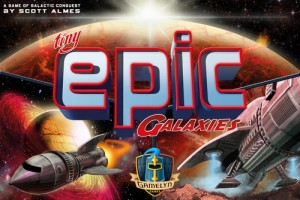
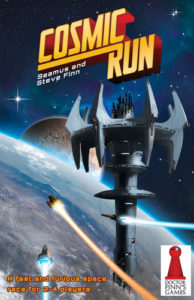
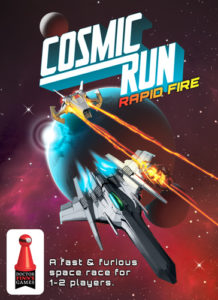
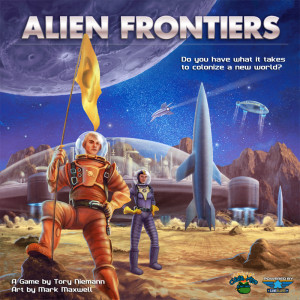
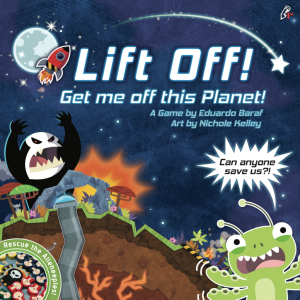
Sam says
Although there are a whole raft of Tiny Epic games from the same designer (zombies/ cowboys/ mechs/ kingdoms/ tactics/ dinosaurs etc), we've only played these space-themed ones. I'm a sucker for a space theme and I like the accessibility here - it's not a difficult game to learn and the 'following' rule adds a little bit of spiciness. It's a little like Yahtzee, with a few bells on, and a theme that a lot of kids will enjoy too. A ground-breaking classic? No, but it's not striving to be. It's a solid family game that will take up far less space on the shelf than a litany of more expensive options, and offering just as much fun as many of them too.